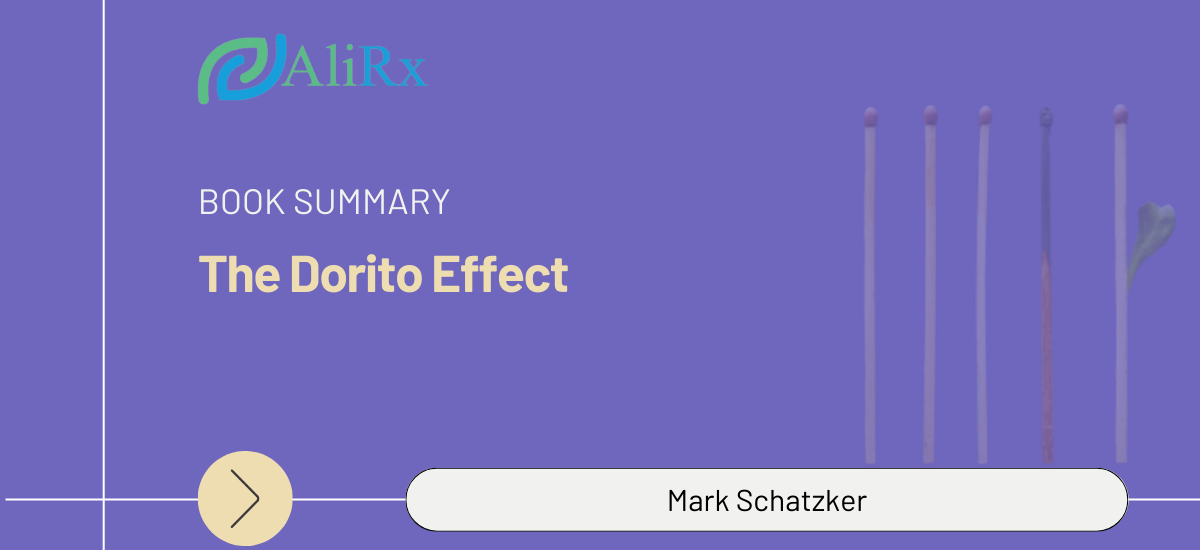
A Book Summary
“The Dorito Effect” by Mark Schatzker explores the impact of industrial farming and food production on the taste and nutrition of our food. Schatzker argues that as modern agriculture has focused on producing more and bigger crops, it has also inadvertently stripped food of its natural flavor and nutrients.
The book begins by tracing the history of flavor, examining how early humans evolved to seek out foods that provided them with the nutrients they needed to survive. As humans have developed new farming techniques, however, the flavor and nutritional content of our food has suffered. Schatzker argues that the food industry has responded to this by adding artificial flavors and other chemicals to enhance the taste of food, leading to a “Dorito effect” in which we crave the intense, artificial flavors of processed foods over the more subtle flavors of natural foods.
The book goes on to explore the impact of this phenomenon on our health, arguing that the nutrient-deficient diets many of us consume are contributing to a host of modern health problems, including obesity, diabetes, and heart disease. Schatzker concludes by calling for a return to more natural, flavorful food production methods and a renewed focus on the nutritional content of our diets.
He argues that the overconsumption of highly processed, artificially flavored foods has led to a host of health problems, including obesity, diabetes, and heart disease.
Schatzker explains that when we eat natural foods that are rich in nutrients, our bodies are able to regulate our appetite and metabolism effectively. However, when we consume foods that are nutrient-deficient and artificially flavored, our bodies struggle to recognize when we are full, leading us to overeat and consume more calories than we need.
Furthermore, Schatzker highlights how the lack of natural flavor in modern foods has led to a rise in the use of artificial sweeteners, such as high-fructose corn syrup, which have been linked to a host of health problems. He notes that these sweeteners are often added to processed foods to mask the absence of natural flavor and to make them more palatable to consumers.
Schatzker argues that in order to address these health problems, we need to focus on consuming more natural, nutrient-rich foods. He calls for a renewed focus on sustainable agriculture and the use of natural flavorings, such as herbs and spices, to enhance the taste of our food. He also stresses the importance of reading food labels and avoiding highly processed foods that are loaded with artificial flavors and sweeteners.
Overall, “The Dorito Effect” is a thought-provoking exploration of the impact of modern food production on our health and our taste preferences. It challenges readers to reconsider our relationship with food and the role that industrial farming and food processing play in shaping the flavor and nutritional content of the foods we eat.





